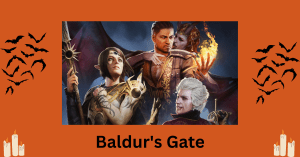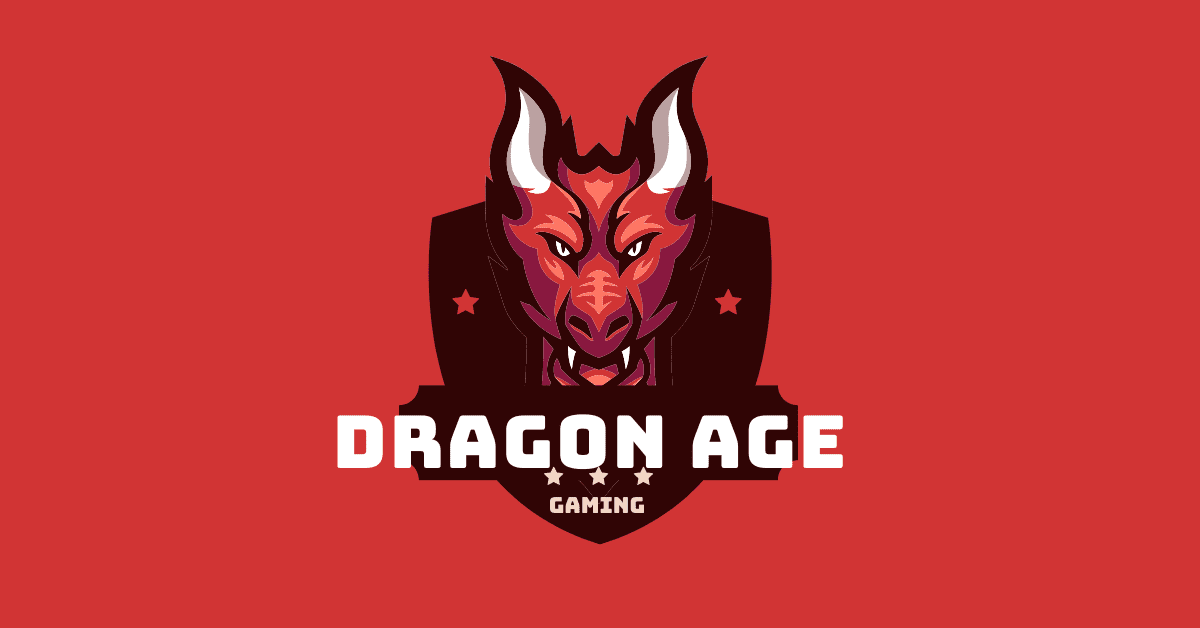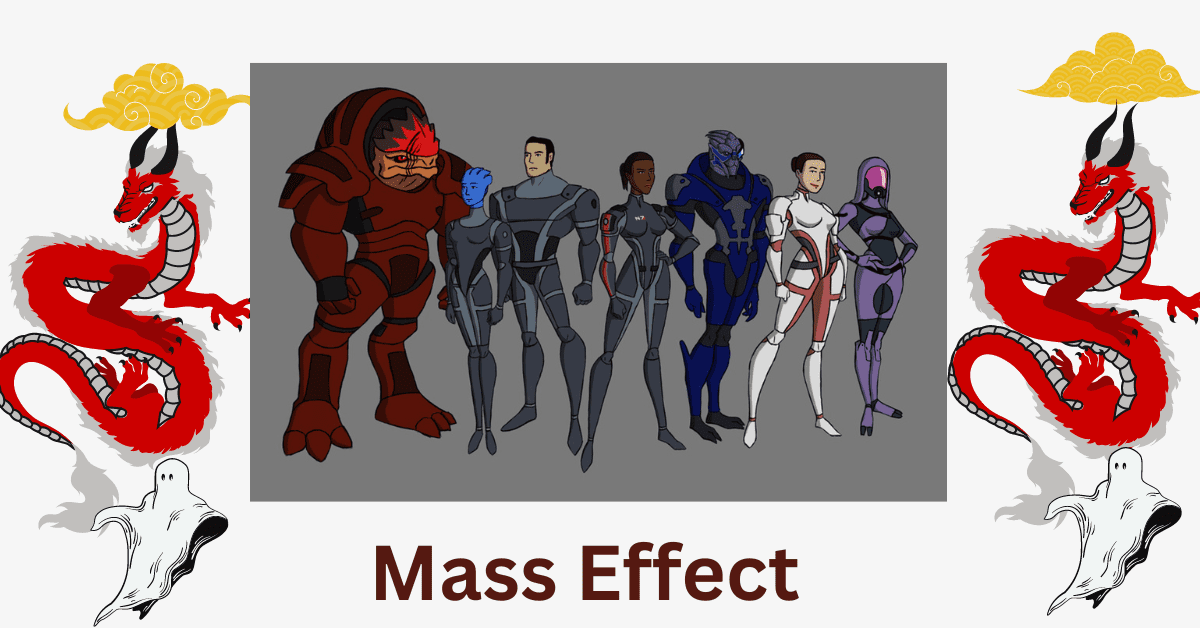Are you a fan of role-playing games? Do you love games that allow you to create your character and embark on epic quests? If so, you might be familiar with the Baldur’s Gate series. This iconic series has been a staple of the RPG genre since its inception in 1998. In this article, we’ll take a closer look at the Baldur’s Gate series and explore what makes it such an important part of gaming history.
Overview of the Baldur’s Gate series:
Baldur’s Gate is a series of role-playing video games developed by BioWare and published by Interplay Entertainment. The series takes place in the Forgotten Realms, a fictional world created by author R. A. Salvatore for the Dungeons & Dragons tabletop role-playing game. The first game, Baldur’s Gate, was released in 1998 and was a critical and commercial success. It was followed by a sequel, Baldur’s Gate II: Shadows of Amn, in 2000.
The series has since expanded with several spin-off games, including Baldur’s Gate: Dark Alliance and Baldur’s Gate: Enhanced Edition, and a third instalment, Baldur’s Gate III, is currently in development. The series is known for its immersive storytelling, deep character customization, and tactical combat.
Characters and story
The Baldur’s Gate series features a wide cast of characters with unique personalities and backstories. The player character, or “PC,” is a custom-made character that can be created using a variety of races, classes, and backgrounds. The series’ story centres around a prophecy foretelling a great evil threatening the world, and the PC’s quest to stop it.
Throughout the games, the PC meets companions who join them on their journey. These companions have their own stories and motivations and can influence the PC’s story based on the player’s choices. The series’ overarching story is epic in scope and features numerous plot twists and turns.
Discuss the game mechanics and gameplay of the series.
The games also feature a vast open world for players to explore, filled with quests, treasure, and secrets to discover. The world has many enemies, from common bandits to powerful monsters and dragons. Players can interact with the world and its inhabitants through various dialogue options, significantly affecting the story and the relationships between characters.
Innovative feature
One of the most innovative features of the series is its use of the Dungeons & Dragons ruleset. The games use a modified version of the 2nd edition ruleset, allowing players to create characters with a wide range of abilities and skills. Players can choose from various classes, including fighters, mages, clerics, and thieves, and can customize their characters with feats, spells, and equipment.
How do the games allow for player choice and decision-making?
One of the key ways that the games allow for player choice is through dialogue options. Throughout the fun, the player character will have conversations with other characters and be presented with multiple dialogue options. The player’s choices in these conversations can have significant consequences, ranging from changes to the story and quests to changes in how other characters view the player character.
In addition to dialogue options, the games allow players to make choices that affect gameplay mechanics. For example, the player may choose to specialize in a particular type of combat or magic, which can affect how they approach battles and interact with the game world. The player may pursue different quests or storylines, leading to different outcomes and rewards.
Overall, the game mechanics and gameplay of the Baldur’s Gate series are designed to allow players to make meaningful choices that affect the story, the characters, and the game world. The series is known for its emphasis on player agency, and it remains a classic example of implementing choice and decision-making in an RPG.
How do the games allow for player choice and decision-making?
One of the key ways that the games allow for player choice is through dialogue options. Throughout the fun, the player character will have conversations with other characters and be presented with multiple dialogue options. The player’s choices in these conversations can have significant consequences, ranging from changes to the story and quests to changes in how other characters view the player character.
In addition to dialogue options, the games allow players to make choices that affect gameplay mechanics. For example, the player may choose to specialize in a particular type of combat or magic, which can affect how they approach battles and interact with the game world. The player may pursue different quests or storylines, leading to different outcomes and rewards.
The games also allow players to recruit and customize party members, adding another layer of choice and decision-making to the gameplay. The player can choose which characters to recruit, and they can customize their abilities and equipment to fit their playstyle.
Discuss the legacy of the Baldur’s Gate series in the gaming industry.
One of the biggest legacies of the Baldur’s Gate series is its influence on subsequent RPGs. The game’s emphasis on player choice and decision-making has become a hallmark of the genre, and many modern RPGs have borrowed elements from the series.
For example, the Mass Effect and Dragon Age series, developed by BioWare, which also developed Baldur’s Gate, is often cited as spiritual successors to the Baldur’s Gate series.
The series has also significantly impacted the development of RPG mechanics and technology. The first game was one of the first RPGs to use real-time combat, and it was also one of the first games to use pre-rendered backgrounds and 3D character models. These innovations helped to push the boundaries of what was possible in RPG development and inspired other developers to experiment with new ideas.
The Baldur’s Gate series has also left a legacy in the modding community. The games have a dedicated fanbase, and players have created countless mods that add new quests, characters, and gameplay mechanics to the fun. This modding community has helped keep the games relevant and has inspired other developers to embrace modding to extend their games’ lifespan.
Notable feature
The series is also notable for its immersive storytelling and deep characters. The games feature intricate and well-written storylines, with various memorable characters, each with its unique backstories and personalities. The characters are also fully voiced, adding to the game’s game’s game’s game’s immersive experience.
Another notable feature of the series is its use of real-time combat. Unlike many other RPGs, the games use a real-time combat system, allowing for more fast-paced and action-packed gameplay. However, the game also includes a pause-and-play feature, allowing players to pause the action at any time to issue commands to their characters.
FAQs
Q. What is Baldur’s Gate, and what kind of game is it?
Baldur’s Gate is a series of classic role-playing video games that are set in the fantasy world of Dungeons & Dragons. These games allow players to create their character and embark on an epic adventure through a richly detailed game world filled with monsters, quests, and other challenges.
Q. How many games are in the Baldur’s Gate series, and in what order should I play them?
There are currently two main games in the Baldur’s Gate series: Baldur’s Gate and Baldur’s Gate II: Shadows of Amn. In addition, several expansion packs and spin-off games are related to the series. We recommend playing the games in order, starting with Baldur’s Gate and then moving on to Baldur’s Gate II, as this will give you the best understanding of the series’ storyline and gameplay mechanics.
Q. Are the Baldur’s Gate games difficult to play?
The Baldur’s Gate games can be challenging for new players, especially those unfamiliar with the rules and mechanics of Dungeons & Dragons. However, the games also offer a range of difficulty options, including an easy mode, so players of all skill levels can enjoy the experience.












Leave a Reply